Sitting in the center of Southern South America, Paraguay is very much overshadowed by its larger neighbors, Brazil and Argentina, which are much more popular with tourists.
While Paraguay’s widely marketed neighbors receive crowds of tourists every year, in Paraguay itself, you will find a quieter land where a visitor from overseas is not seen as a tourist passing through but as a new friend.
In this guide:
- Paraguay’s highlights.
- The legalities of moving to Paraguay: visas and residency options.
- The cost of living: monthly expenses, rentals, and real estate.
- Paraguay as a retirement destination.
- Infrastructure: travel connections, public transport, internet.
- Buying real estate.
- Healthcare and education.
- Opening a bank account.
- Where to live in Paraguay – an overview of the most popular expat locations.
- The pros and cons.
- Tips for moving.
Paraguay’s highlights
Paraguay is a great place to live for anyone wishing to discover new and unspoiled land.
You will find the people of Paraguay to be warm and welcoming, always willing to invite guests to their homes or to explain and demonstrate the culture of Paraguay. Something of which they are rightly proud.
Paraguay has a young population, and every house is filled with the sound of children. Paraguayans are very keen on children, and anyone with a young family will quickly make many new friends.
Paraguay applies a 10% income tax on anything you earn inside Paraguay and a 0% income tax on anything you earn outside the country. So your foreign pension or any foreign income will be free of tax in Paraguay.
Paraguayan residency
Applying for Paraguayan residency is a relatively straightforward process. It is very much a case of ensuring the correct documents are collected together, translated, and authenticated.
When you first apply for residency in Paraguay, you will receive a two-year temporary permit. Then, after those two years, you can apply for permanent residency.
Providing everything is in order, you can expect to receive your temporary residency card within approximately 90 days.
Your local Paraguayan embassy will be able to provide a list of the required paperwork and how each document needs to be processed.
The necessary documents
The documents are split on the whole into two categories: your home country documents, such as birth certificate, passport, and local police report, which must be translated and authenticated in Paraguay; and the documents you need to obtain in Paraguay, such as an Interpol report and a medical certificate.
Legal help
It is quite possible to complete the entire residence application process yourself. However, doing everything yourself will require a fair amount of time and patience, as well as a basic command of Spanish, while you head from one office to another seeking the correct stamps and signatures.
Alternatively, there are a number of English-speaking lawyers in Asunción who specialize in residency applications and other related matters. This is the option chosen by most. That way, a professional can deal with your paperwork, leaving you free to attend to other matters, such as finding somewhere to live.
Deposit
On the subject of residency, one further item needs to be noted. To begin the process of permanent residency, you will be required to either leave a deposit of $5000 (£3,600) or the deeds to a property you have purchased in Paraguay.
This is required in order to show that you do genuinely intend to reside in Paraguay. Once the process is complete, all funds and paperwork you leave with the Ministry of Immigration will be returned to you.
Note: If you come as a digital nomad, no deposit is required. Temporary residence applications also do not require a deposit.
The cost of living in Paraguay
Paraguay is quite an affordable country. Food, everyday expenses, rent, and even property prices won’t break your budget.
Here’s how Pargauays’ cost of living compares to some North American and North European countries:
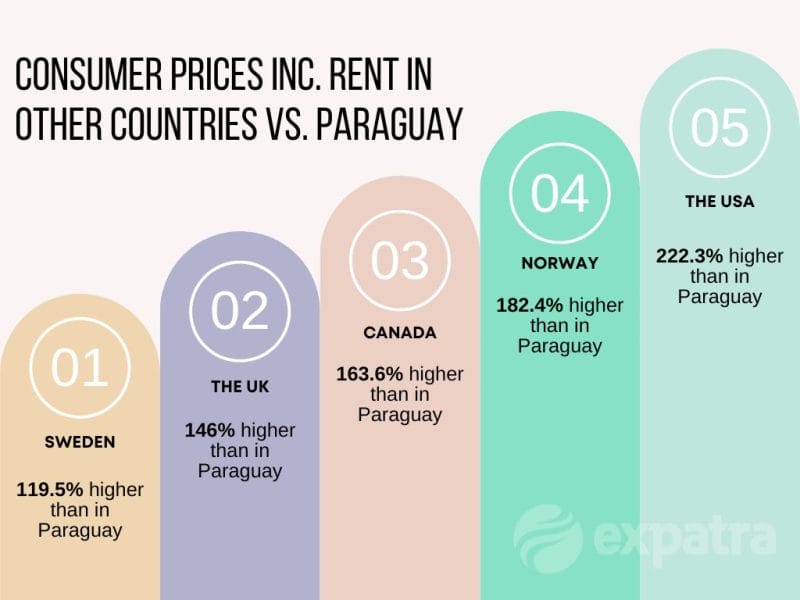
Renting
Property prices depend primarily on whether the property is in Asunción or not. The costs are considerably higher if you want to live in Asunción.
Renting a property in Paraguay is relatively straightforward. A non-resident can rent a home simply using their passport as identification. There are no legal formalities to be completed before renting.
Properties for short and long-term rents can be found on Airbnb and Facebook Marketplace, in addition to Paraguayan sites such as Clasipar. Furthermore, word of mouth and local knowledge will reveal many more properties that are not listed online.
For a property in Asunción, you should expect to be paying between G$1,500,00 and G$4,000,000 ($225 – $600 or £162 – £440) per month, depending on the size of the property, its location, and the level of comfort. It is quite possible to spend twice as much on a top-of-the-range luxury apartment.
Once beyond the suburbs of Asunción, prices drop dramatically. A modern, comfortable home in a town or the countryside within easy reach of Asunción can be found for as little as G$1,000,000 ($150, £110) per month.
Food and other regular expenses
Food in Paraguay is not expensive, nor though is it overly cheap. For a local family, food is often the largest monthly expense.
The main issue that must be considered, however, is not the cost but rather the limited variety available. This is very much a reflection of the conservative eating habits of the Paraguayans, who know what they like and stick to it.
Accordingly, you will immediately notice the vast areas of shelf space given over to rice and pasta and the large meat counters.
By far, the cheapest place to buy food in Paraguay is in a market. However, these are not the easiest places to shop. Any list of purchases will involve visits to many stalls.
These days the markets whilst still very much in business, have been surpassed by the supermarkets. Even the smallest country town has one or two, and there are many modern large supermarkets all across Asunción.
As they operate on a much larger scale than the markets, they can stock a much wider range of goods, including a small selection of imported goods solely for expats.
Prices in supermarkets are comparative and consistent. A kilo of rice costs a couple of dollars, and a kilo of good quality beef – about seven.
Wine is good value, although beer is not overly cheap. Something it does make up for with its quality.
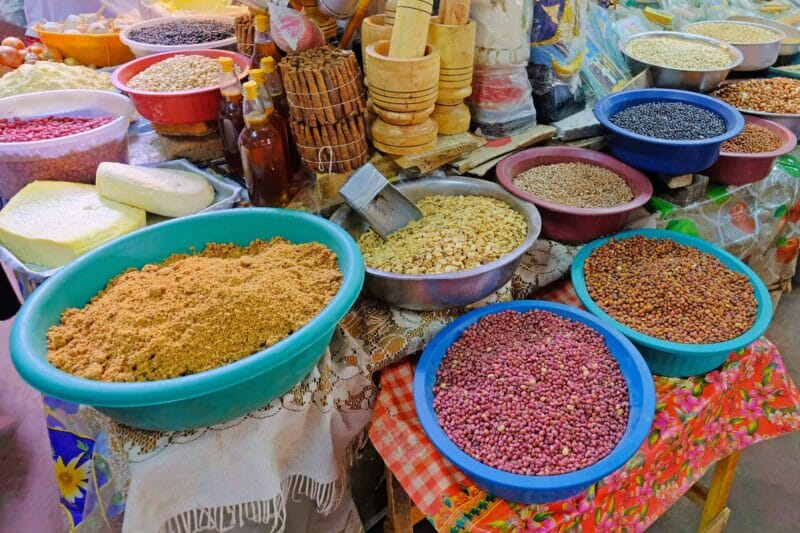
A weekly shop will come to between $20 and $40 (£15 – £30) in a supermarket, although this will rise once a few luxury items are included.
All in all, you will not find the cost of food to be an issue with money going much further than it would elsewhere.
Retiring to Paraguay
According to the Expatra Global Retirement Index, Paraguay is in the top 20 best retirement destinations in the world.
The index is based on the Expatra Global Retirement Survey that asks international retirees to rate their retirement destination’s infrastructure, climate, ease of settling down, value for money, friendliness, and other aspects of life in their retirement destination.
Here’s how Paraguay scores:
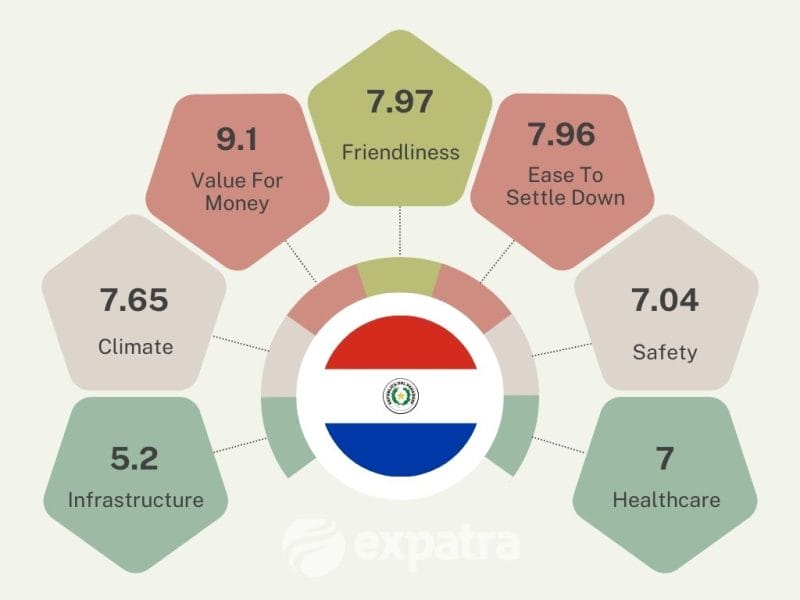
Paraguay is a good place to move upon retirement if you are seeking somewhere quiet, green, and unpolluted. There is also the possibility of having a home constructed to your exact requirements.
The Paraguayan people are friendly and helpful and will soon make you feel a welcome part of their community.
For the relaxed, get-away-from-it-all sort of retirement, the countryside would be preferable to Asunción. You should, though, consider somewhere within easy reach of Asunción or one of the other population centers in order to have access to their amenities. The outskirts of a country town may be ideal.
If you are looking for a more active retirement and wish to have access to all the fittings of the developed world, such as shopping centers and coffee shops, you may wish to consider Asunción.
The countryside can be a little too quiet and undeveloped for some tastes.
The pace of life in the countryside is slow, and the landscape is forever green. There can be a few more relaxing places to sit and watch the sun go down behind the palm trees every evening.
Buying real estate
As with renting a house, good places to look for properties to buy are Clasipar and Facebook Marketplace.
There are a number of independent real estate agents who will be able to help you find your home. You will find, though, that the larger Paraguayan real estate chains tend to prefer to deal with land rather than houses.
As for the costs, they are again like rental costs higher in Asunción than in the rest of the country. There has been a real estate boom for several years now, and you may feel that some of the prices asked for properties in Asunción are a little high.
A leftover from when most property deals involved land rather than houses, there is still the habit of giving value to a property in accordance with how much space it occupies.
In Asunción, this can be anything from G$5,000,000 to G$10,000,000 ($750-$1500, £540 – £1,080) per square meter. Additional value is then added to take into account the level of the fixtures and fittings.
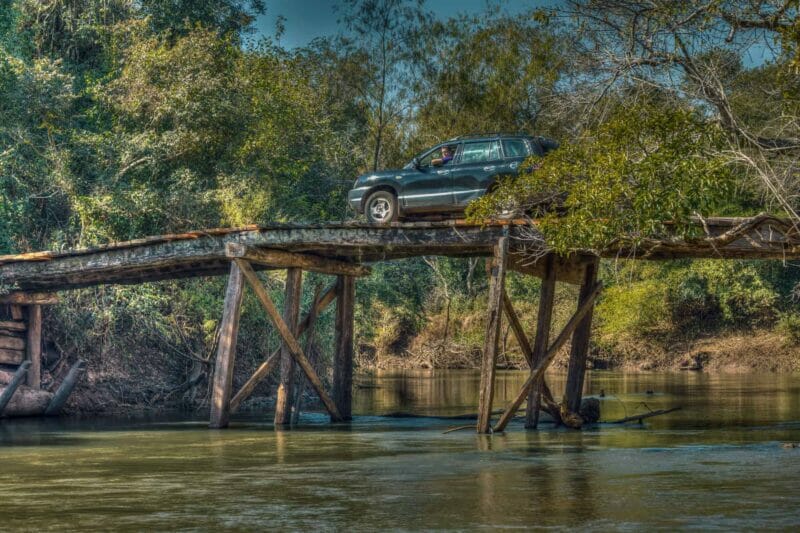
The net result of this is that it’s difficult in Asunción to find anything other than the most basic of accommodation for less than $100,000 (£72,000).
To find something of international standards, a starting figure of $250,000 (£180,000) would be more appropriate.
Outside Asunción, that same $250,000 (£180,000) would be enough for a well-optioned house with some grounds. You should be able to find a comfortable townhouse in one of the towns within easy reach of Asunción for around $100,000 (£72,000).
Buying land and building a house in Paraguay
Another alternative is to simply buy some land and have your dream house built. This is easy to arrange in Paraguay as it is something that is commonly done.
Buying land and building a house will give you a house exactly in the form you desire and, at the same time, reduce the overall costs as, in addition to the land, only the building materials and labor would be required.
Land currently sells for approximately $15,000 (£10,815) per hectare, and that does vary greatly from place to place depending upon its location.
Travel connections
The Silvio Pettirossi International Airport in Asunción serves as a key hub for both domestic and international flights, connecting Paraguay to various destinations around the world.
Paraguay does not have any direct flights from the USA, Canada, or Europe. However, there are options for travelers from these regions to reach Paraguay with connecting flights. Here are some common routes:
- From the USA: you can fly from cities like Miami, New York, and Atlanta with connecting flights through hubs such as Buenos Aires, São Paulo, or Panama City.
- From Canada: Air Canada, for instance, offers flights from cities like Toronto and Montreal with connections in major South American cities.
- From Europe: many European airlines offer flights to connecting hubs like São Paulo or Buenos Aires before reaching Asunción.
Public transport
Public transportation in Paragy will not blow you away. Most locals and expat residents living outside Asunción end up buying a car.
Buses are the most common mode of public transportation in Paraguay, used within cities and towns as well as for traveling across the country.
You can also use collectives – shared minivans or buses that follow fixed routes. They are very affordable and operate within a city or between nearby towns.
Asunción has a modern bus rapid transit system called Metrobús. It is actually quite good, with dedicated bus lanes and well-defined routes.
Paraguay’s train network is very limited, but there are a few train services available. The most popular one is the Tren de los Pueblos, which operates between Asunción and Areguá.
Internet
The main internet providers (both mobile and fixed) in Paraguay are Personal, Tigo, and Claro.
The speed and quality depend greatly on where you are based. In cities and bigger towns, you can get fiber broadband with decent speed and connection. Going more rural, you need to check what’s on offer.
Free Wi-Fi in Paraguay is reliably available mostly in Asuncion and Ciudad del Este. In other locations, finding free Wi-Fi can be a challenge.
Mobile internet
This is the most common way to connect to the internet in Paraguay. Over 90% of residents use their mobile devices to access the internet.
Via SIM Card
To buy a SIM card in Paraguay, you need to visit an official store of one of the three companies we have already mentioned: Tigo, Claro, or Personal. You can find them in every large mall throughout the country.
Tigo has wide coverage, but Claro and Personal have cheaper pay-as-you-go plans.
Make sure to bring along your passport and have some cash at hand. Unless you have Paraguayan residency, your only option would be a pay-as-you-go plan.
Via Pocket WiFi
Portable WiFi routers known as Pocket WiFis are widely used in Asia and Latin America. These routers enable simultaneous connections to multiple devices, similar to a traditional router.
They work as 4Gspeed mobile hotspots, so they are as good as the mobile coverage in your area.
Satellite internet
The two main satellite internet companies in Paraguay are Arsat and Skycasters. Arsat provides high-speed and low-speed internet, with speeds reaching up to 10 Mbps. Skycasters also offers high-speed satellite services, with speeds going up to 25 Mbps.
Healthcare in Paraguay
Another thing to consider is medical care.
The national healthcare system in Paraguay is not on par with those in the Western world.
There are, however, private clinics in almost every town. These vary in size and quality but are all superior to their national counterparts.
Generally, the larger the town, the more private options are available, with the best being located in and around Asunción.
Here’s a list of the top 10 private hospitals in Paraguay:
- Hospital Santa Clara – Asunción
- Sanatorio San Roque – Asunción
- Sanatorio Británico – Asunción
- Sanatorio San Sebastián – Asunción
- Hospital Internacional – Asunción
- Hospital Central del IPS – Asunción
- Hospital San Jorge – Asunción
- Hospital Sirio Libanés – Ciudad del Este
- Hospital La Costa – Asunción
- Hospital Central del Circulo de la Unión – Asunción
You can find more information in our guide, Healthcare And Health Insurance For Expats In Paraguay.
Education and schools
All legal residents in Paraguay have access to state schools to send their children to state schools, as they are open to all residents. However, language barriers and cultural differences may pose challenges for expat children, especially if they do not speak Spanish fluently.
Many expat families opt to enroll their children in private or international schools that offer bilingual education and a curriculum more aligned with their home country.
The majority of such schools are concentrated in and around Asunción. The only option outside is Collège français Jules-Verne. It is a French international school in Ciudad del Este from preschool and up to lycée.
Collège and lycée students use the distance education program of the National Centre for Distance Education. Preschool and elementary school are taught face-to-face.
Opening a bank account
As you will be required to make a cash deposit to initiate the residency process, you will need a bank account.
Opening a bank account in Paraguay is fairly easy. In Asunción, there will usually be someone in the office who speaks English and can talk you through the process should your Spanish not be of the standard required to discuss financial matters.
There are several banks with branches across the country, and different banks will have features that suit different people best. As such, it is not possible to recommend a particular bank. However, all are stable and solidly financed.
When choosing a bank, you should consider the following:
- Is there a branch near where you intend to live?
- Will it accept deposits from overseas?
- Does it offer Internet banking?
- Will there be an internationally acceptable plastic card?
- And whatever additional requirements are needed to tailor the service to your individual needs.
Where to live in Paraguay
Asunción
Asunción is the largest city in Paraguay, its capital, and the commercial and tourist hub of the country.
As such, it is the most modern and amenity-packed city in the country.
It is the place to find sports centers, shopping centers, coffee bars, and all the other services you would expect to find in a city.
Additionally, embassies are all located in Asunción, as are the government ministries that, from time to time, need to be dealt with.
Furthermore, for families with school-age children, Asunción is where international and English language schools are to be found. Away from Asunción, finding a suitable school may present some difficulties.
Asunción itself is not a large city, although its suburbs do spread out over a large area. You should be able to find everything within a short distance, either in the historic center or in the more upmarket Villa Morra district near the modern shopping centers.
Encarnacion
Encarnacion sits on Paraguay’s southern border, facing the Argentine town of Posadas across the Rio Parana. There is a bridge over the Rio Parana connecting the two.
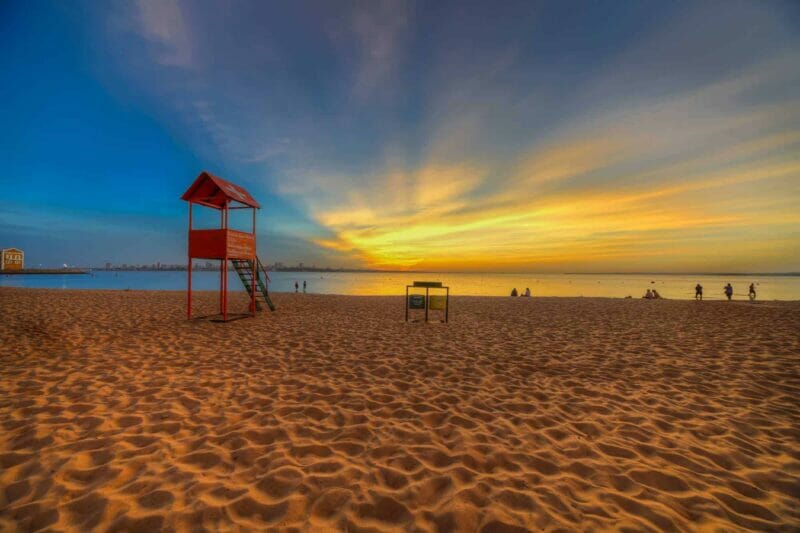
Encarnacion has, over recent years, received many modernizations and renovations. It is now the première resort town in Paraguay. It is also home to the largest carnival in the country.
The renovations the town received included the rebuilding of much of the lower town. This now has smart riverside boulevards and large beaches. The town amenities are modern and well-planned.
Encarnacion is also located near Paraguay’s Jesuit Ruins. These Missions represent the only world heritage site in Paraguay and are one of the world’s least crowded. Over the border in Argentina, similar ruins receive busloads of tourists, but here, you may well have the sites to yourself.
Encarnacion is a good place to live in order to see the bright modern side of Paraguay and to have easy access to Argentina.
Caacupe
Caacupe is the religious center of Paraguay and is located in a range of low hills approximately 50km from Asunción.
For most of the year, it is a quiet country town. Then, for a couple of weeks in December, it is crowded with pilgrims from across the country and beyond coming for the Feast of the Immaculate Conception and to visit the Virgin of Caacupe.
The streets packed with pilgrims and street traders are one of the must-see sights of Paraguay.
After that, the town becomes quiet once more.
Having to cope with the huge influx of visitors every year, the town has a good infrastructure. It has many large open spaces and a wide selection of bars and restaurants. Additionally, the variety of stores on offer is larger than might normally be expected in a town of its size.
The hills in which Caacupe sits are a popular tourist area. Nearby are the tourist towns of Piribebuy and Tobati. These are both surrounded by very attractive countryside.
Caacupe is a very good place to live to be amongst beautiful countryside and yet still within easy reach of all the amenities that are required for a modern and comfortable life.
Living in Paraguay: the pros and cons
Just like any other country, Paraguay has its cons and pros.
The pros of living in Paraguay
1. Fresh air and open space
One of the top-selling points about Paraguay is the fresh, clean air. There is a degree of pollution in the towns and cities, but once beyond their limits, you will quickly notice how green everything becomes.
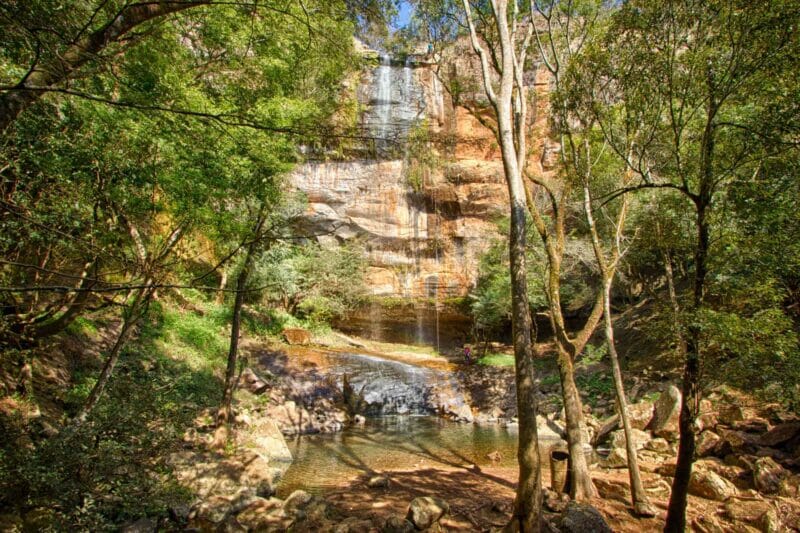
Paraguay contains mile after mile of green and unbroken countryside. There, the air is clear and unpolluted. Trees and grasses cover much of the country, creating a rural paradise.
Here are to be found welcoming small towns and the refreshing crystal clear streams that are ideally suited to a cooling bath on a hot summer day.
2. The welcoming Paraguayans
The natural temperament of a Paraguayan is relaxed and welcoming. Any visitor is greeted with a warm smile and often the invitation to partake in the national drink Terere. The cold and refreshing beverage is drunk every day by all.
A Paraguayan will not correct you on your Spanish pronunciation, and with just a few common words, warm friendships can be formed. Mastering just a few words in the Guarani language will receive warm appreciation.
Local communities are always keen to welcome newcomers, and you can expect invitations to local festivals and celebrations. This is an excellent way to learn more about the culture and customs of Paraguay and to become part of something.
3. Off the tourist trails
Positioned in the center of Southern South America, Paraguay is, on the whole, overlooked by globe-trotting tourists. Some do visit Asunción but then travel right across the country to get to Brazil and the Iguassu Falls. Few, though, ever explore the interior.
Thanks to this, the people of Paraguay have had no need to adjust their ways to the whims of tourists.
So the colorful festivals that take place in every corner of the land continue as they always have done. Performed by locals for the benefit of and enjoyment of locals.
Saints Days and Town Parades are always colorful events.
This does not mean they are unwelcoming to guests and visitors. In fact, locals take great pride in being able to show off the finery of an event. You may find yourself being shown the best place to view the spectacle or even being invited to join in the dancing.
With the limited numbers of tourists that pass through Paraguay, overseas visitors are not seen as the blight. Instead, everyone is treated as an honored guest and with genuine interest.
These feelings remain regardless of whether you stay for a week or for a number of years.
4. Low cost of living
Paraguay is, on the whole, an inexpensive country. It is, of course, possible to live a lavish and expensive lifestyle but to live a good life requires far less money than the equivalent would in North America or Europe.
Although some more specialized items can only be found in Asunción, these days, even the smallest country town has a well-equipped supermarket filled with all the necessary provisions.
Food is not expensive in a supermarket or even in a good restaurant. Additionally, the cost of both water and electricity is low.
If you wish to use public transport, you will discover how low the fares are. A trip anywhere within Greater Asunción costs no more than 35 cents.
The cons of living in Paraguay
1. The heat
The first and most important thing to understand about Paraguay is that it is a hot land. Far from sea breezes, the temperatures soon rise under the clear blue skies.
In summer, temperatures well in excess of 100 (37 Celsius) are common. Even in mid-winter, a warm spell can push the temperature above 90 (32 Celsius).
The heat, although not unrelenting, is fairly continuous. The local people, without thinking, slow down as the mercury rises, and you would be well advised to do the same. Remember to take on plenty of fluids and seek out shade during the hottest hours.
Summer nights are often only a few degrees cooler than the days, and without air conditioning can be quite humid.
However, as autumn approaches, the difference between daytime and nighttime temperatures widens, giving some enjoyable evenings.
If heading to Paraguay from cooler climes, allow time to become accustomed to the heat. After a summer or two and with a good habit of rehydration, the body will adjust.
2. Developing world infrastructure
Anyone moving to Paraguay must remember that Paraguay is a developing country and adapt accordingly. The fact that things don’t work or don’t run quite as they should is part of the charm of the place and must be allowed for rather than fought against.
The electricity and water will go off from time to time. Do not expect a Paraguayan, even in a smart Asunción hotel, to look surprised or concerned if the lights suddenly go out.
Electricity is most likely to go off during storms when either the cables are blown down or parts of the grid are turned off to avoid electrical damage. Either way, within a few hours, the power will be back on, and it will be as though nothing has happened.
The power cuts are now beginning to become less common. The national electric company is currently investing heavily in upgrading the system.
As for water, that is liable to go off during times of drought when the water table drops and the water companies shut off supply for a while to various areas to ration their supply. This, unfortunately, is most likely to happen during the hottest parts of the year.
To avoid being inconvenienced by intermittent supply at these times, you may wish to consider either installing a tank to hold a reserve supply or even drilling a borehole.
3. Limited tarmac roads
In Paraguay, all the main roads and the principal roads in the towns and cities are now all tarmacked.
However, it does not take long to leave the tarmac as the majority of the roads throughout Paraguay are still rough tracks of either dirt or cobblestones.
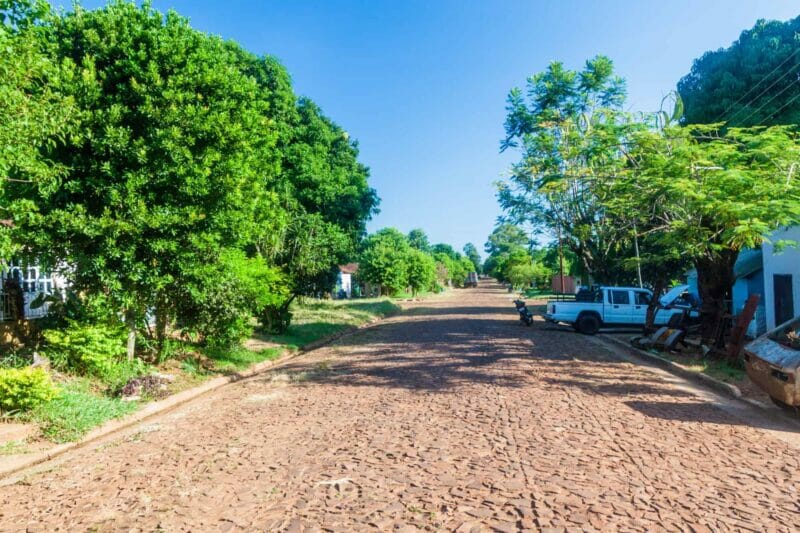
In towns just a few blocks away from the town centers, the tarmac gives way to cobblestones. These give an uncomfortable ride but are passable by all vehicles.
However, once outside the urban zones, almost every track leading away from the main roads is dirt. These are passable in all but the worst weather. They can also be quite rough and pitted.
The majority of the tracks are passable with caution. You need to watch out for holes where rain has washed away the road surface, along with soft sandy stretches and areas of exposed rocks.
Due to such roads, you’d better avoid low-clearance cars. If hiring a car in Asunción, you will find hire companies unwilling to hire out such a car if you plan to travel into the countryside.
A sturdy vehicle with good ground clearance is always the best option. Most tracks are used all day long by local buses, lorries, and motorbikes, so a vehicle with a bit of ground clearance should not present you with any undue difficulties.
Tips and advice from an experienced expat
Paraguay is a good country to consider moving to. It is a country unspoiled by mass tourism with plenty of space for everyone. The countryside is green and pollution-free and cities like Asunción offer all that could be wanted from a modern city.
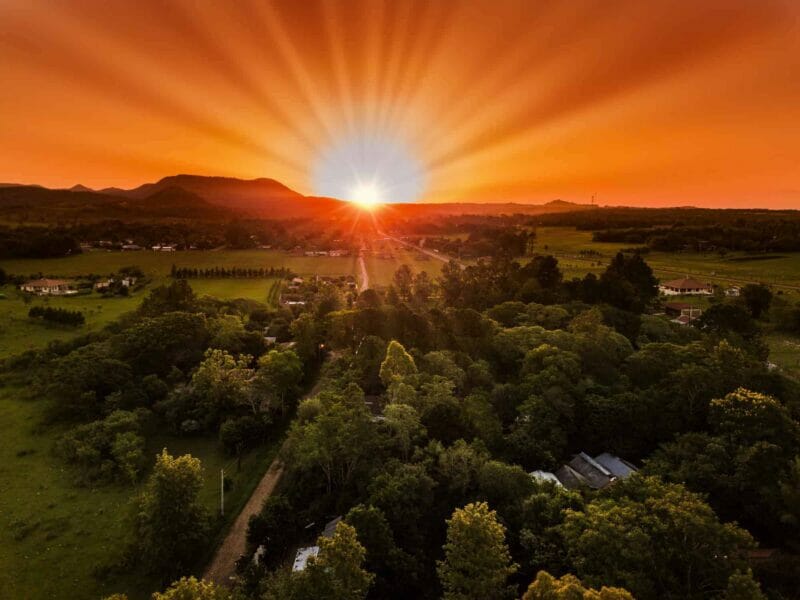
The people of Paraguay are warm and welcoming and will take great pleasure in showing you their cuisine and culture. It does not take long at all to be accepted as part of the local community.
Paraguay is a developing country, and many things do not always work quite how they should. The electricity may go off, the stores may not have quite the right produce, and the roads may be a little rough. These issues, though, affect everyone, and it’s best to adapt to or work around them rather than fight against them.
The people of Paraguay are polite and go out of their way not to cause offense.
Raised voices are rarely heard. This makes living with them enjoyable.
One downside is the avoidance of causing offense by not being able to answer a question. You will receive a confidently stated wrong answer rather than no answer. It is often best to ask around a little rather than going with the first response.
Additionally, punctuality and time pressures are not concepts natural to Paraguayan culture. Do not expect a local to turn up at a pre-agreed time or an event to begin within an hour or two of the quoted start time.
It is considered bad manners to arrive and immediately talk business. Protracted small talk, usually over terere is always required before any mention can be made of business.
None of the above makes living in Paraguay difficult, and adjusting to local ways can only make life here more pleasurable.
Final thoughts on living in Paraguay
To summarise, Paraguay is a good place to live. The formalities are straightforward, and with the welcoming nature of the people of Paraguay, fitting in is easy.
Paraguay is not for those seeking a fast-paced, high-tech lifestyle, but if you are looking for a slower pace of life much closer to nature, Paraguay might be just the place.
To anyone wishing to escape the frantic pace of the modern world or simply wishing to have a relaxing retirement, Paraguay’s green and open spaces await.
Of course, it is not entirely without the joys of the modern world. In places like Asunción and Encarnacion, those things can be found in abundance.
Come and visit and see for yourself all that this undiscovered country has to offer. A warm welcome awaits you.
You might find useful:
- The Best Places To Live In Paraguay For Expats
- Healthcare And Health Insurance For Expats In Paraguay
- Didn’t find what you were looking for or need further advice? Contact us or comment below with your question, and we will do our best to help
Helpful external links:
- Paraguay residency rules and requirements – Paraguay government.
- Non-resident visa requirements – Paraguay government.
- Information for British citizens living in Paraguay – UK government.
- USA embassy in Paraguay – https://py.usembassy.gov/.
Further places to explore in Latin America:
- Living In Chile
- Living In Mexico
- Living In Argentina
- Living In Costa Rica
- Living In Colombia
- Living In Panama
- Living In Ecuador
- Living In Brazil

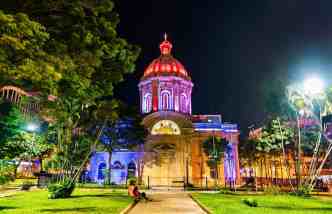
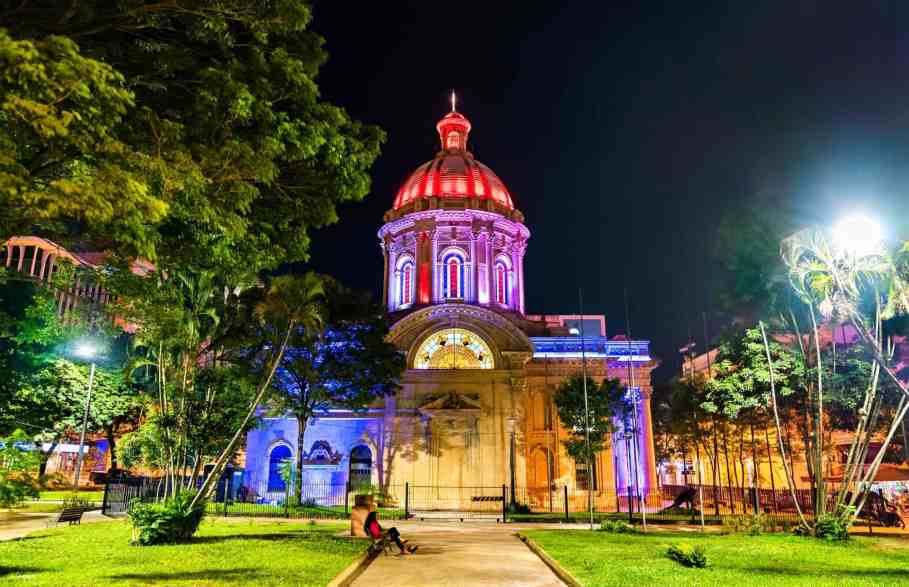

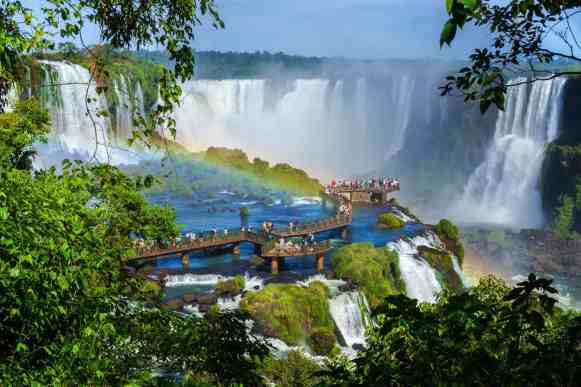
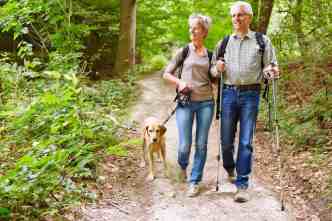

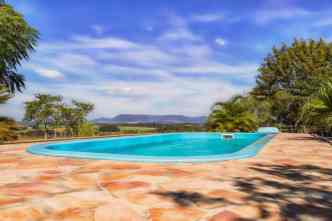
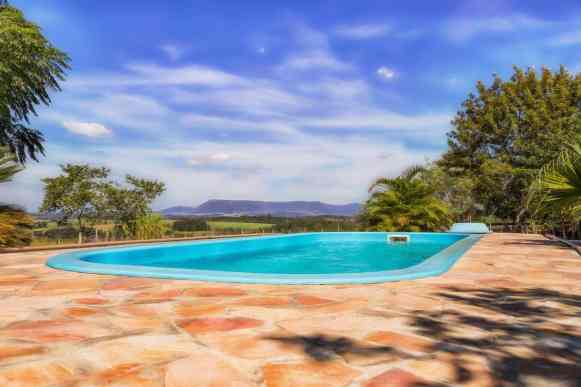
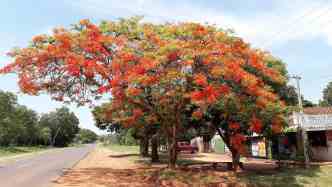
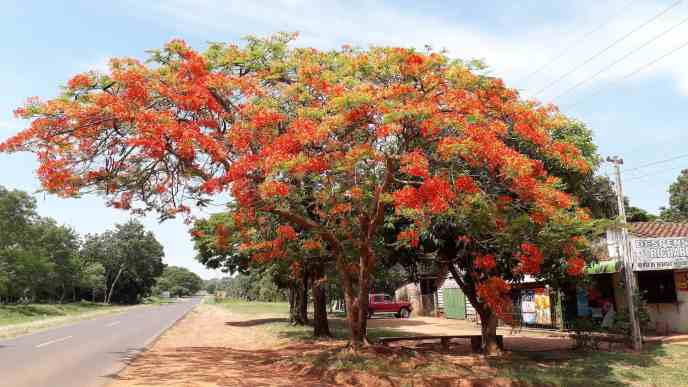
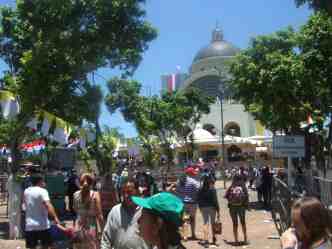
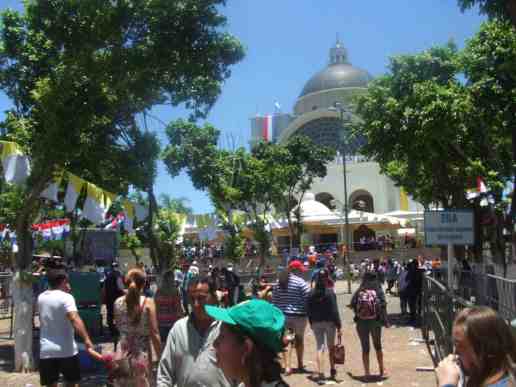
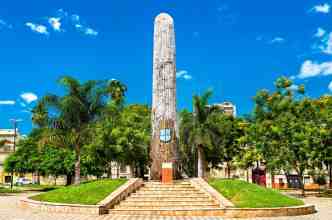
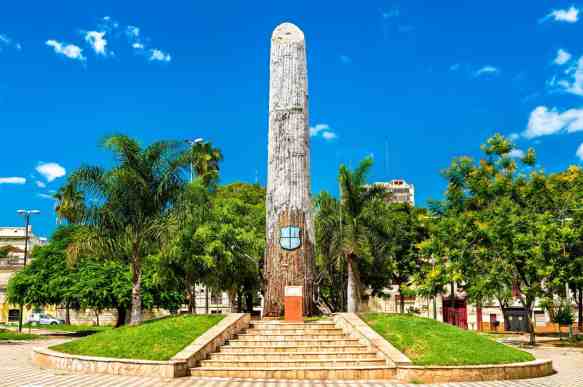
Hi all
Has anyone heard of the El Paraiso Verde community? They seem to be trying to form a community of like minded individuals ,seems interesting.
Also what is crime like in different parts of Paraguay , city versus country ?
Appreciate any feedback
Hi Jim. Paraiso Verde is quite well know of amongst the expat community here in Paraguay. It is very much a community for like minded individuals and so not the sort of place for those with other mindsets. That said there do appear to be a number of individuals who are very happy with what is on offer there. As you might expect such a place generates some very positive and some very negative reviews. The truth no doubt lies somewhere in between but there is something of a veil of secrecy over exactly what the set up is. And as for crime, low in the countryside (apart from areas no foreigner would ever need to go) and a bit higher in the towns and cites where there are more people around. Generally Paraguay is a safe country and with a bit of common sense trouble should never be encountered.
You can find videos about El Paraiso Verde on youtube. Make sure to see them all in order to have the right picture
You state under “Deposit” — “To begin the process, you will be required to either leave a deposit of $5000 (£3,600)”
But I have heard elsewhere that the rules changed and this is no longer required.
Hi Primroses, thanks for commenting. It is true that prove of solvency via a deposit has been removed from the new temporary residence process, that is valid for just 2 years. After that, the whole thing needs to be gone through again for permanent residency where the system is just the same as it has always been, making a deposit is still available there.
I have a 10 year Cedula card, that I have, and a 10 year permanent residency card, that I don’t have (lost or misplaced). On the Cedula the “fecha de vencimiento” is 13-03-25. It was issued almost 10 years ago.
1. Is there an attorney or reliable source for assisting me renew it?
2. I’m from the US, what kind of paperwork is required to renew the Cedula and permanent residency card?
Thanks to anyone who can offer any experience and knowledge. Thank you.
Hello Eddy, renewing a celdula should be a fairly straightforward process, it is something everyone living in Paraguay has to do every ten years. Yours is approaching it’s expiry date so you should be able to renew rather than replace it. If you are in Paraguay your local municipalidad will be able to do that for you, if not the best thing to do would be to contact your local Paraguayan embassy and get it seen to through there. Simon
Very interesting article, I am a son of Expats, they came in the 70s and things were very different then but something are the same. Its very welcoming country for Expats. I am from Ciudad Del Este, I recommend this city over Asuncion, it is the second biggest city in PY and it is much more multicultural. you will always find someone speaking english on the streat, and my Daughter goes to bilingual School that most of the classes are done in English. and they are 3 mayor bilingual schools here Spanish / English schools. some are like the one my daughter goes to are focus on teaching exclusively in English.
Thank you very much, William, for such a valuable addition.
Hi – we are planning to move to Paraguay and would love to get it touch with some people who have already moved there. We are from England.
Hi Nicola and Dave,
: Did you make the move then? I too am an expat. Permanent Residency. Just wondered how it all went with your move. A year on!
Best Wishes, Grey
Hello Simon, my name is Tim Rovers.
My son and I are interested in finding a good lawyer in Paraguay to help us through the residency application process.
Do you have any suggestions?
Thank you in advance for any assistance you may give.